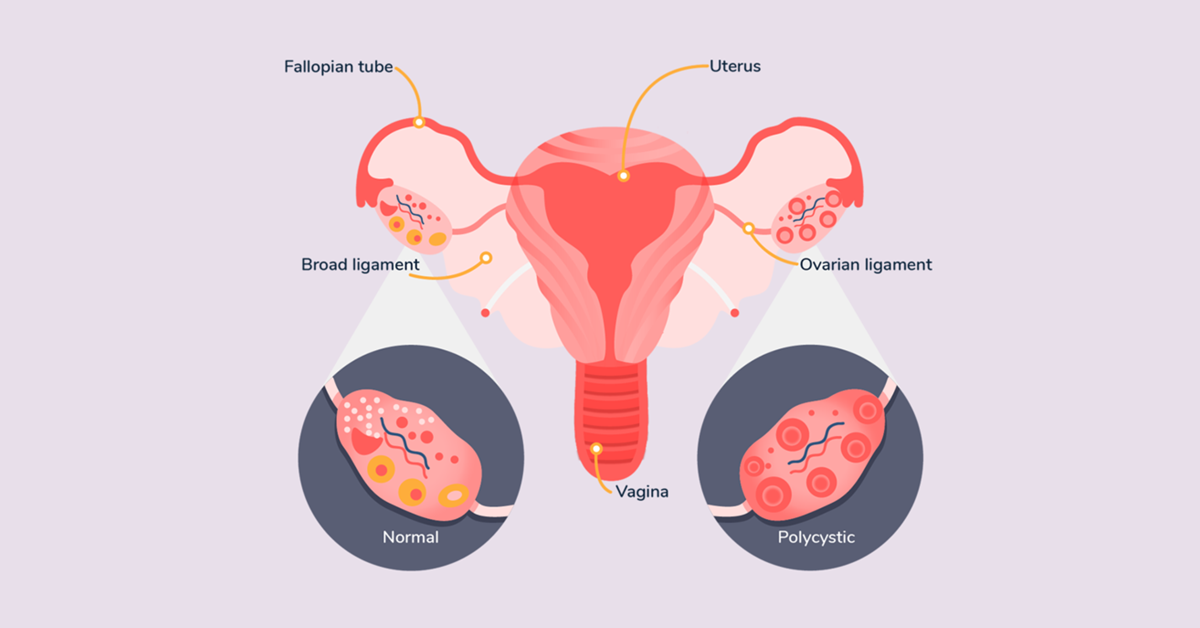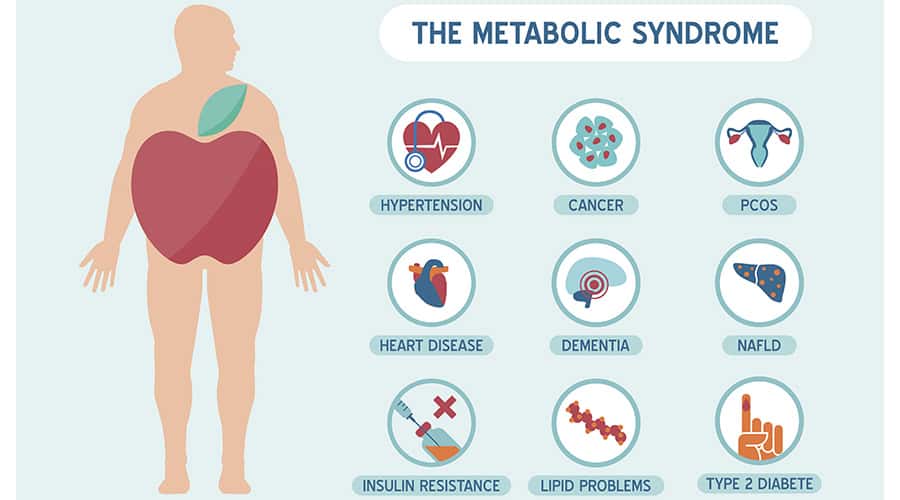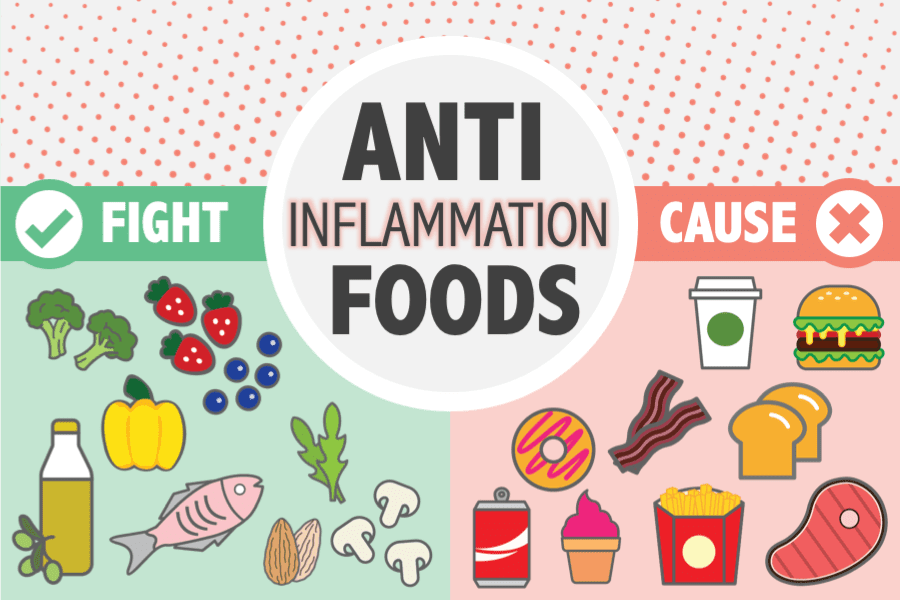
Inflammation is like our body’s defense system, fighting off the bad stuff and fixing wounds. But if it sticks actively too long, it can cause immense problems for our health. New research shows that this long-lasting inflammation is linked to many diseases.
So, it's necessary to know that chronic inflammation is not good for us and can affect our health a lot.
“Inflammation that’s not specifically from an infection or injury often doesn’t manifest into a lot of clear symptoms,” said Dr. Ketan Amin.
Understanding the Basics: Inflammation
Inflammation happens when your body reacts to things like germs, injuries, or cells that get hurt. Your immune system sends chemicals and special cells to the spot, making it red, swollen, warm, and painful—these are the usual signs of quick inflammation. This will help your body fix the issue and get back to normal.
While inflammation is usually a way for your body to protect itself, there is a catch. If it sticks around too long, it becomes chronic inflammation. Unlike quick inflammation, chronic inflammation quietly lingers, hurting your body's parts over time without you even knowing.

Causes of Chronic Inflammation
Chronic inflammation can have multiple causes and often involves a combination of factors rather than a single isolated cause, like:
- Autoimmune disorders
- Persistent infections
- Obesity
- Environmental factors
- Unhealthy diet
- Chronic stress
- Sedentary lifestyle
- Smoking
- Genetic factors
- Aging
Impact of Inflammation on Heart Health
Chronic inflammation is strongly connected to your heart’s health. If it lasts a long time, it can harm the insides of your blood vessels, causing plaque buildup, making your arteries narrower, and slowing down blood flow. This raises the chance of problems like atherosclerosis, heart disease, and stroke.

PCOS and Inflammation
In PCOS, there's a type of ongoing mild inflammation that happens because of things like insulin resistance, obesity, and hormone problems. This inflammation can make PCOS symptoms worse.
Studies show that this inflammation in PCOS can make insulin resistance worse, affecting how your body uses glucose and raising insulin levels. Insulin resistance and having too much insulin can lead to PCOS development by messing up hormones, causing irregular periods, and forming ovarian cysts.

Role in Autoimmune Disorders
Autoimmune disorders occur when the immune system wrongly attacks the body's healthy cells. In illnesses like rheumatoid arthritis, lupus, and multiple sclerosis, long-lasting inflammation is common. In these situations, the immune system goes haywire and causes ongoing inflammation, hurting joints, organs, and more. Handling this lasting inflammation is very important to manage symptoms and avoid future problems for people with autoimmune disorders.
Persistent chronic low-grade inflammation can kill you slowly over time.
Link to Metabolic Disorders
New research shows that lasting inflammation is linked to metabolic issues like obesity, type 2 diabetes, and non-alcoholic fatty liver disease. In overweight people, extra fat tissue creates chemicals that cause widespread inflammation. This kind of inflammation messes up how insulin works, causing insulin resistance and problems with how your body handles glucose, which can eventually lead to type 2 diabetes.
Mental Health and Chronic Inflammation
Although we usually link inflammation with physical health issues, new studies suggest a possible link between lasting inflammation and mental health problems. Research shows that people with depression, anxiety, and memory problems have more signs of inflammation. This inflammation might affect how the brain works, causing chemical imbalances and brain inflammation that could play a role in mental health conditions.

How can you Prevent Chronic Inflammation?
Preventing chronic inflammation involves adopting a healthy lifestyle and making conscious choices that promote overall well-being. Here are some ways to help prevent chronic inflammation:
- Anti-inflammatory foods: Add foods that naturally fight inflammation to your diet. These include fatty fish (like salmon, mackerel, and sardines), olive oil, nuts (such as almonds and walnuts), seeds (like flaxseeds and chia seeds), fruits (like berries and cherries), vegetables (such as leafy greens, broccoli, and bell peppers), and whole grains.
- Omega-3 fatty acids: Increase your intake of omega-3 fatty acids, as they have potent anti-inflammatory effects. Apart from fatty fish, other sources of omega-3s include chia seeds, flaxseeds, walnuts, and hemp seeds.
- Antioxidant-rich foods: Eat foods packed with antioxidants to lower inflammation and shield against oxidative stress. Choose vibrant fruits and veggies, like berries, cherries, leafy greens, and cruciferous vegetables such as broccoli and Brussels sprouts.
- Spice it up: Certain spices possess anti-inflammatory properties. Turmeric, ginger, garlic, and cinnamon are examples of spices that can be beneficial. Incorporate them into your meals whenever possible.
- Avoid processed foods: Processed and refined foods often contain high levels of unhealthy fats, sugars, and additives that can promote inflammation. Opt for whole, unprocessed foods as much as possible.
- Regular physical activity: Stay active with regular exercise to maintain a healthy weight, boost heart health, and improve overall well-being. Strive for around 150 minutes of moderate-intensity aerobic activity or 75 minutes of vigorous-intensity aerobic activity every week, and do not forget strength training exercises.
- Stress management: Chronic stress can contribute to inflammation. Adopt stress management techniques such as mindfulness meditation, deep breathing exercises, yoga, or engaging in hobbies that help you relax and unwind.

Conclusion
Chronic inflammation has a profound impact on overall health. Prolonged inflammation can disrupt normal physiological processes, leading to a wide range of health conditions such as cardiovascular disease, diabetes, autoimmune disorders, and certain types of cancer. It can also contribute to accelerated aging and impaired cognitive function.
Recognizing the role of chronic inflammation and taking proactive steps to manage and prevent it is crucial for maintaining optimal health. By adopting a healthy lifestyle, including a balanced diet, regular exercise, stress management, and adequate sleep, individuals can reduce inflammation levels and mitigate its detrimental effects, promoting a healthier and more vibrant life.
Frequently Asked Questions (FAQs)
1. What are the symptoms of chronic inflammation?
Chronic inflammation doesn't always show obvious symptoms, but it can contribute to fatigue, joint pain, frequent infections, and other health concerns.
2. Can chronic inflammation be detected through tests?
Some blood tests can indicate markers of inflammation, such as C-reactive protein (CRP) levels, which can help identify the presence of chronic inflammation in the body.
3. Is chronic inflammation related to obesity?
Yes, excess fat tissue in overweight individuals can release inflammatory chemicals, contributing to chronic inflammation and increasing the risk of obesity-related health problems.
4. Can chronic inflammation affect mental health?
Ans: Emerging research suggests a link between chronic inflammation and mental health disorders like depression and anxiety. Inflammation might affect brain function and contribute to these conditions.
5. Can chronic inflammation be reversed?
Making positive lifestyle changes, such as adopting a healthy diet, exercising regularly, managing stress, and avoiding harmful substances, can help reduce chronic inflammation.
6. Is chronic inflammation linked to aging?
Yes, researchers have associated chronic inflammation with aging and age-related diseases. Managing inflammation can potentially contribute to healthy aging.
Disclaimer: The information and other content provided in this blog, or in any linked materials, are not intended and should not be construed as medical advice, nor is the information a substitute for professional medical expertise or treatment. If you or any other person has a medical concern, you should consult with your healthcare provider.


.png)


